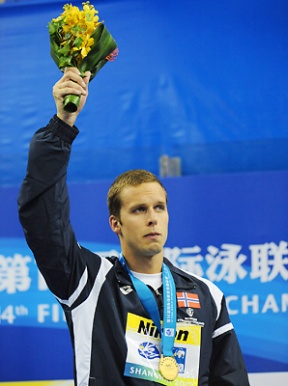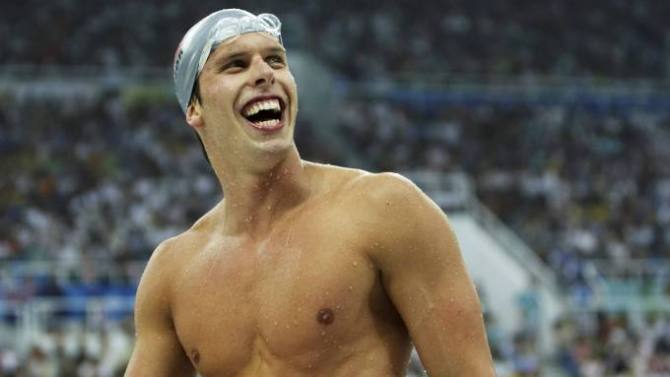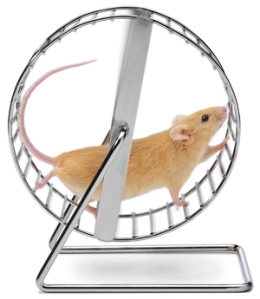Alexander Dale Oen jokingly told me that he´d happily have my calf muscles to improve his starts, even though they may cause some drag in the water. I was telling him how his physique would suit kettlebell sport, more specifically the snatch, with his long arms and explosive hips. After the Olympics in London, he said, I could teach him more about kettlebells, but until then his coaches wouldn´t be too happy. I explained some of the movements and could tell he was genuinely interested.
Dale Oen had recently returned from Shanghai where he was crowned 100m breaststroke world champion. We occasionally met at my local gym, shared stories, joked and had a mutual appreciation of the science behind training. When I last spoke to Oen, we briefly mentioned London 2012, where he offered to try and sort me out tickets to the aquatic centre. I´d followed his progress from a shoulder injury and he seemed quietly confident he would be back in top shape come July. Sadly, just last week on April 30th, Alex suffered a suspected cardiac arrest whilst at a national team training camp in the US, and died, aged 26.
For a small nation like Norway, Oen´s death came as a massive shock. Few athletes have made it to the top of genuine world sports, and his humility and humble roots made for an extra outpouring of grief. He had, the nation well remembers, dedicated his world title last year to the victims and families of the terrible tragedies tat struck Oslo and Utøya on 22 July. In Bergen, the town he was born in and raised close by, the feeling was one of losing its most illustrious son.
As one who has dabbled in sports psychology, I had a particular fascination with the mindset of those elite athletes who seemed to handle the enormous pressures of training and competition to make it to the very top. I once shared a coffee with Alex after training, having recently returned from Solomon Islands where I had been working with elite footballers. There were many ways those players handled pressures, and I was interested in finding common threads, using previous studies of elite rugby league players in New Zealand as further comparison.
Dale Oen spoke of his continuous search for movement patterns that could make him swim faster. Training hard was something he had always been used to, and enjoyed. But his recent rise to the top of world swimming was due to new discoveries which he was sure put him at an advantage over his competitors. I had heard elite athletes talking about “that something extra” before, and even though few had given me a clear definition of what that was, I assumed it was connected to an unconscious pattern of moving beyond conscious and habitual performance. The skills elite athletes posses are often expressed in effortless ways, almost as a transcendence of the self. I had pondered a lot on this so-called “zone”, and never wanted to bore or confuse the athletes I´d spent time with all the literature. I was simply interested in what the “feel” was like.
With slight, but continual changes in his training and technique, Oen told me that on certain occasions (usually in training) he felt so effortlessly fast. This wasn´t the case when he won the world title surprisingly. “Not the perfect race by any means”, he said. I asked him what was unique about world champions, and I sensed his typical modesty when he explained that some athletes simply had a better capacity to eliminate inhibiting movement and interference that would slow them down, at the same time as they had found an optimal balance of training technique, volume and ability to fire at a very important moment. Hard work, he added, was a necessity even for those with supreme natural abilities.
 We spoke about other sports and joked about my experiences in Norway, and my lack of swimming ability. Could I become a world class swimmer without shaving my body, I asked?. “I know a good waxer in Oslo”, Alex replied. But what about my chunky legs?, I said. “Just enter the 50m, jump from the blocks so hard that you reach the end in one breath!”.
We spoke about other sports and joked about my experiences in Norway, and my lack of swimming ability. Could I become a world class swimmer without shaving my body, I asked?. “I know a good waxer in Oslo”, Alex replied. But what about my chunky legs?, I said. “Just enter the 50m, jump from the blocks so hard that you reach the end in one breath!”.
I sensed Dale Oen had reached the top not only because of his natural talent, work ethic, and top coaching apparatus, but also his open mind when it came to learning how to possibly go faster. “I´ve met swimmers from all over the world, and listened to the way they talk about training and preparation. There is no single way to train, or do anything well. You just have to keep thinking, keep doing things, and learn when things go wrong”.
Dale Oen was optimistic and excited about London 2012, just as he was about getting some food after our chat, and finding out about my ´secret´calf-training methods. We parted ways, and said we´d keep in touch. Sadly, it was the last I saw of Alex. I will remember him as a champion not just of the swimming pool, but of the human spirt. He possessed qualities of warmth, humor, humbleness and humility and was fiercely proud of his birthplace and nation. He will be sorely missed by all who were lucky enough to be touched by his presence, but whose legacy will last for generations to come.




